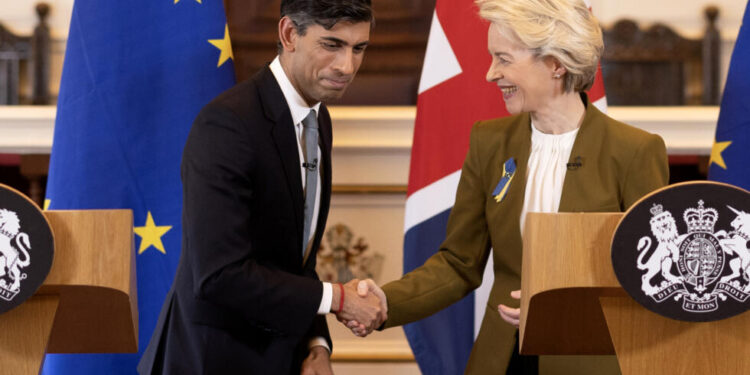Britain is to rejoin the Horizon Europe science research programme, Prime Minister Rishi Sunak’s office and the European Union said on Thursday, after UK scientists were frozen out in a post-Brexit row.
Scientists welcomed the agreement as “a great day for researchers in the UK and across Europe” and a relief after two-and-a-half years of “uncertainty”, raising hopes among anti-Brexit campaigners of further closer collaboration with the EU.
London had said it had been excluded from the scheme that funds research projects due to wrangling with Brussels over post-Brexit trading arrangements in Northern Ireland.
But following a call on Wednesday, Sunak and EU Commission President Ursula von der Leyen announced that Britain was rejoining under what was billed as a “bespoke deal”.
Nobel laureate Paul Nurse, director of biomedical research centre at the Francis Crick Institute, said he was “thrilled to finally see that partnerships with EU scientists can continue”.
The government said rejoining Horizon would give the country’s scientists “unrivalled opportunities” at a good price for British taxpayers.
The EU estimates that the UK will contribute almost 2.6 billion euros (£2.2 billion) per year on average to Horizon Europe and Copernicus satellite monitoring system, from January 1 next year.
But it will not have to pay for the time it was locked out of the programme.
“As part of the new deal negotiated over the last six months, the Prime Minister has secured improved financial terms of association to Horizon Europe that are right for the UK,” a statement said.
Von der Leyen said the EU and the UK were “key strategic partners and allies and today’s agreement proves that point”.
“We will continue to be at the forefront of global science and research,” she added.




















